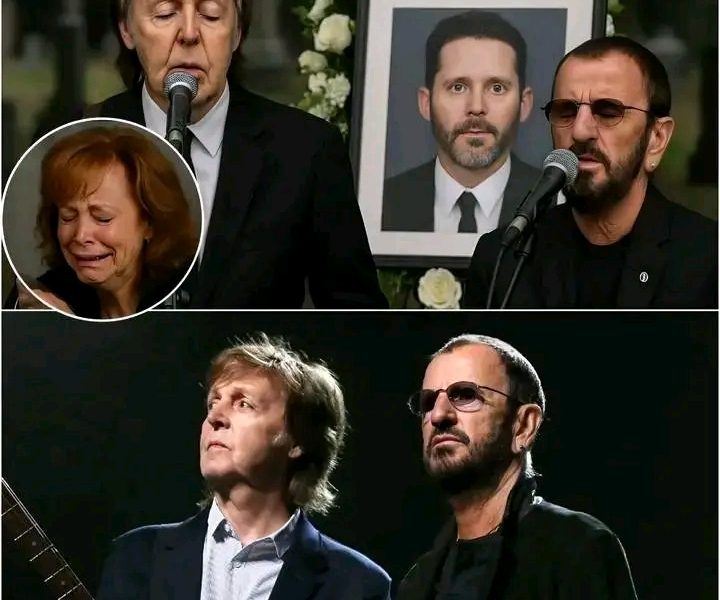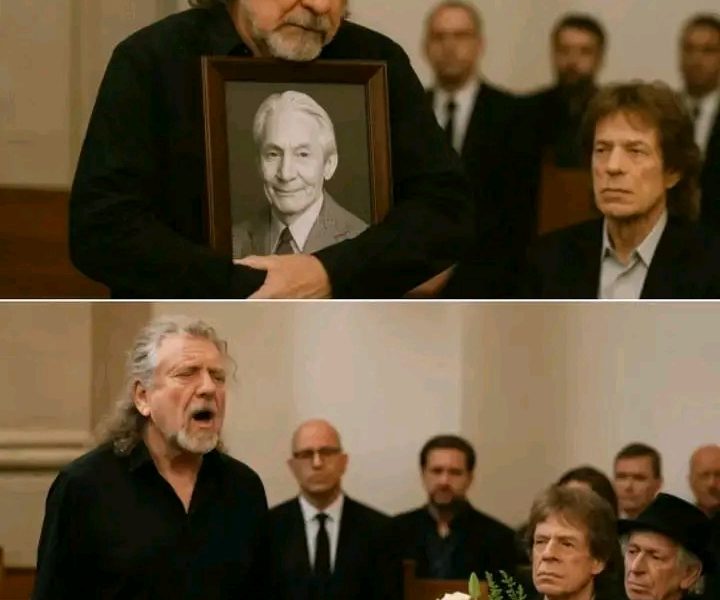**A Stairway Rebuilt: Led Zeppelin at Live Aid, 1985**
*Fictional Narrative – 2000 Words*
July 13th, 1985. The sun over Philadelphia beat down like a spotlight on history. JFK Stadium swelled with a sea of humanity — close to 100,000 strong — sweat-slicked, sunburned, and electric with anticipation. They’d come for Live Aid, for charity, for change — but by the time dusk began to bleed across the sky, they were waiting for something else.
Something legendary.
The rumors had been swirling for weeks, gaining momentum like a Zeppelin lifting off the ground. The word was out: Led Zeppelin was reuniting. Not just a tribute, not just a quick jam. A full-fledged, fire-born resurrection. For the first time since the devastating loss of drummer John Bonham five years earlier, the surviving members — Robert Plant, Jimmy Page, and John Paul Jones — would take the stage. And in place of the irreplaceable Bonzo? His son, Jason, barely out of his teens, sitting where his father once ruled with thunder.
When the announcement was confirmed, it echoed through radio waves, magazines, and whispered voices in record stores across the world. For many, Led Zeppelin wasn’t just a band — they were myth. Gods carved into vinyl and worshipped under blacklight posters in every teenager’s bedroom. Their breakup in 1980 had closed a chapter in music history. Tonight, impossibly, that chapter cracked open again.
The sky dimmed. The crowd roared like a tidal wave crashing toward the stage. On a massive screen, the camera panned to the side of the stage, where Jimmy Page adjusted the strap of his worn Les Paul, the finish dulled by decades of sweat and soul. He looked older now, his wild mane of hair streaked with silver, but his eyes still burned with that mischievous glint — the look of a man who knew how to summon storms.
Behind the drums sat Jason Bonham. His face was taut with nerves and pride. His father’s spirit clung to the air around him, heavy and sacred. John Paul Jones stood calmly, bass slung low, the quiet architect of the band’s rhythm, always the bridge between fire and thunder.
And then, Robert Plant stepped into the light.
His hair golden, his shirt billowing open at the chest, he looked like a lion that had aged with grace — the voice of the 70s, still powerful, still raw. He raised a hand to the crowd.
A moment passed — breath held, fists clenched, eyes locked.
Then the opening chords of **“Rock and Roll”** exploded across the stadium.
Jason’s sticks came down with a crack, a tribute and a war cry, and the song leapt to life. It wasn’t flawless. The tempo was a hair slower than the album cut, and Plant’s voice, though passionate, sometimes chased the melody like a kite tugged by wind. But none of that mattered.
It was *them*.
For eleven minutes, they rolled through “Rock and Roll” and “Whole Lotta Love” like they never left. Page’s guitar wailed, rougher than in their prime but still drenched in soul and smoke. Jones held the floor steady while Jason poured everything into the drums, mimicking his father’s rhythms with reverence and fury.
Then came silence — a hush like dusk falling over the crowd.
Plant approached the mic.
“This one’s… for Bonzo,” he said, eyes shining. The weight of the words dropped over the stadium like a veil.
Page began the gentle, almost hesitant opening arpeggios of **“Stairway to Heaven.”**
It wasn’t just a song. It was *the* song. The anthem that had become a rite of passage for generations. The track that radio stations played endlessly, even as they swore they’d stop. The one that etched Led Zeppelin’s name into the heavens.
Plant sang the opening lines with a kind of mournful defiance. “There’s a lady who’s sure all that glitters is gold…” Each word felt heavier now, aged by time and loss. But as the song built, as Page’s fingers danced over the fretboard with newfound fire, the stadium began to change.
People wept. People screamed. Lighters flickered like stars reborn. And when the song hit its final crescendo — when Page unleashed that solo, faster and messier and more *alive* than anyone expected — it was as though time folded in on itself.
Jason’s drums followed with surprising ferocity. His style was familiar but not a copy — his own heartbeat laid bare. His father’s ghost smiled somewhere, maybe.
When the final lines echoed out — “And she’s buying a stairway to heaven…” — Plant’s voice cracked slightly. Not from age. From *feeling*. From the knowledge that this wasn’t just a concert. It was a reckoning. A catharsis.
The crowd erupted. Not in cheers, but in something deeper — a sound that mixed adulation with grief, awe with celebration. The echo of every teenager who had ever found themselves in Zeppelin’s lyrics, every kid who had learned to play “Black Dog” on a pawn shop guitar, every drummer who pounded their kit dreaming of Bonzo.
Backstage, Bob Geldof — the mastermind behind Live Aid — stood watching with tears in his eyes. He hadn’t just booked a band. He’d summoned a miracle.
But not everyone was blind to the flaws. Critics in the press tent muttered about missed cues, vocal strain, and how Jason, for all his heart, wasn’t his father. Some called the performance “rusty,” “undercooked,” or “a shadow of their former glory.”
But others knew better.
They understood that this wasn’t about technical perfection. It was about **presence**. About *resilience*. About three men standing on stage in the memory of a fourth, trying to bring back something no one thought they ever would.
As the set ended and the band took their bows, Plant placed a hand on Jason’s shoulder. The cameras caught it — a quiet, powerful gesture. Not just approval. *Passing of a torch.*
Later that night, back at the hotel, the band gathered privately. No press. No entourage. Just them. They sat around a low table, drinks in hand, the sound of distant traffic and cheering fans still drifting through the windows.
Jason was quiet. “Do you think… he’d be proud?” he asked, not looking up.
Page leaned back, staring at the ceiling. “He was always proud of you. He just didn’t always say it.”
Plant nodded. “You brought him back tonight.”
No one spoke for a while after that.
Outside, the world was already writing headlines. Some celebratory. Some critical. But all acknowledging one thing: Led Zeppelin had returned, if only for a moment.
And what a moment it was.
The reunion didn’t last beyond that night. The band chose not to extend the magic, to leave it where it belonged — suspended in time, untouchable. But the performance rippled through the years like aftershocks from a long-forgotten quake.
Bootlegs surfaced. Some grainy, some shockingly clear. Fans dissected every second. “Did you see the way Page looked at Plant during the solo?” “Was that Jason improvising the triplet fill?” “Did Plant say ‘for Bonzo’ or ‘to Bonzo’?”
It didn’t matter.
Because they’d done it.
Against odds. Against grief. Against the natural decay of time.
They’d come together not as the invincible gods of rock they once were, but as men — older, bruised, weathered — standing tall in the storm of their own legacy. And somehow, that made it even more powerful.
Years later, when Zeppelin reunited again in 2007 at the O2 Arena — with Jason once more behind the drums — critics hailed it as their true comeback. But for the die-hards, the romantics, the ones who *felt* that night in ’85 like lightning in their veins, the real return had already happened.
Not because it was perfect.
But because it was *true*.
The stairway may have led to heaven that night — or maybe it just led back to earth, where legends walked briefly among us again, lit by the fire of music, memory, and love.
—
Would you like this in formatted text (like PDF o
r Google Doc style), or want me to expand it further into a screenplay or documentary-style script?

